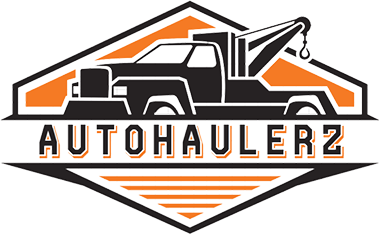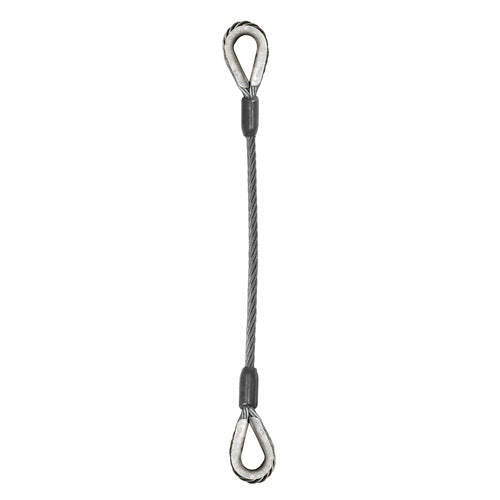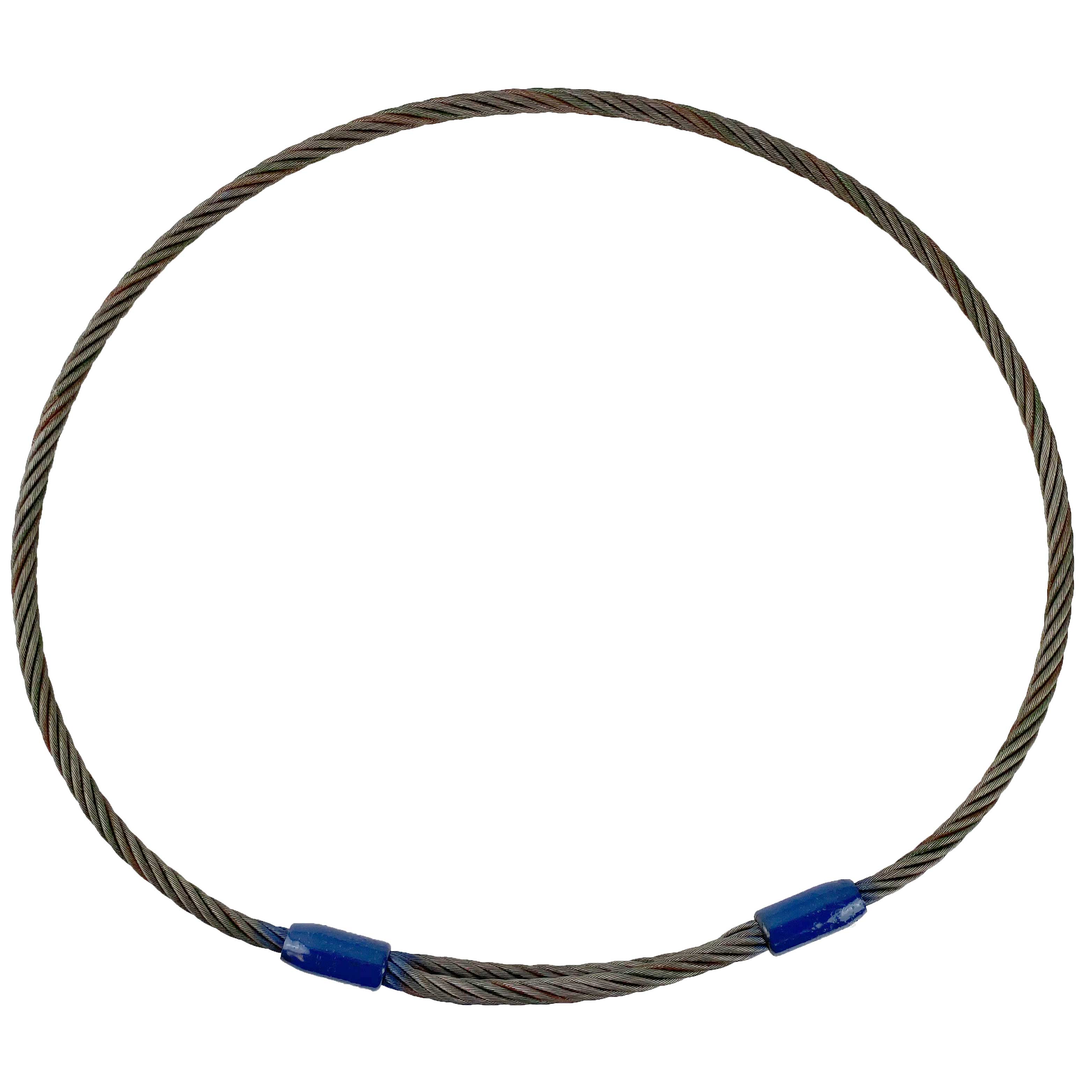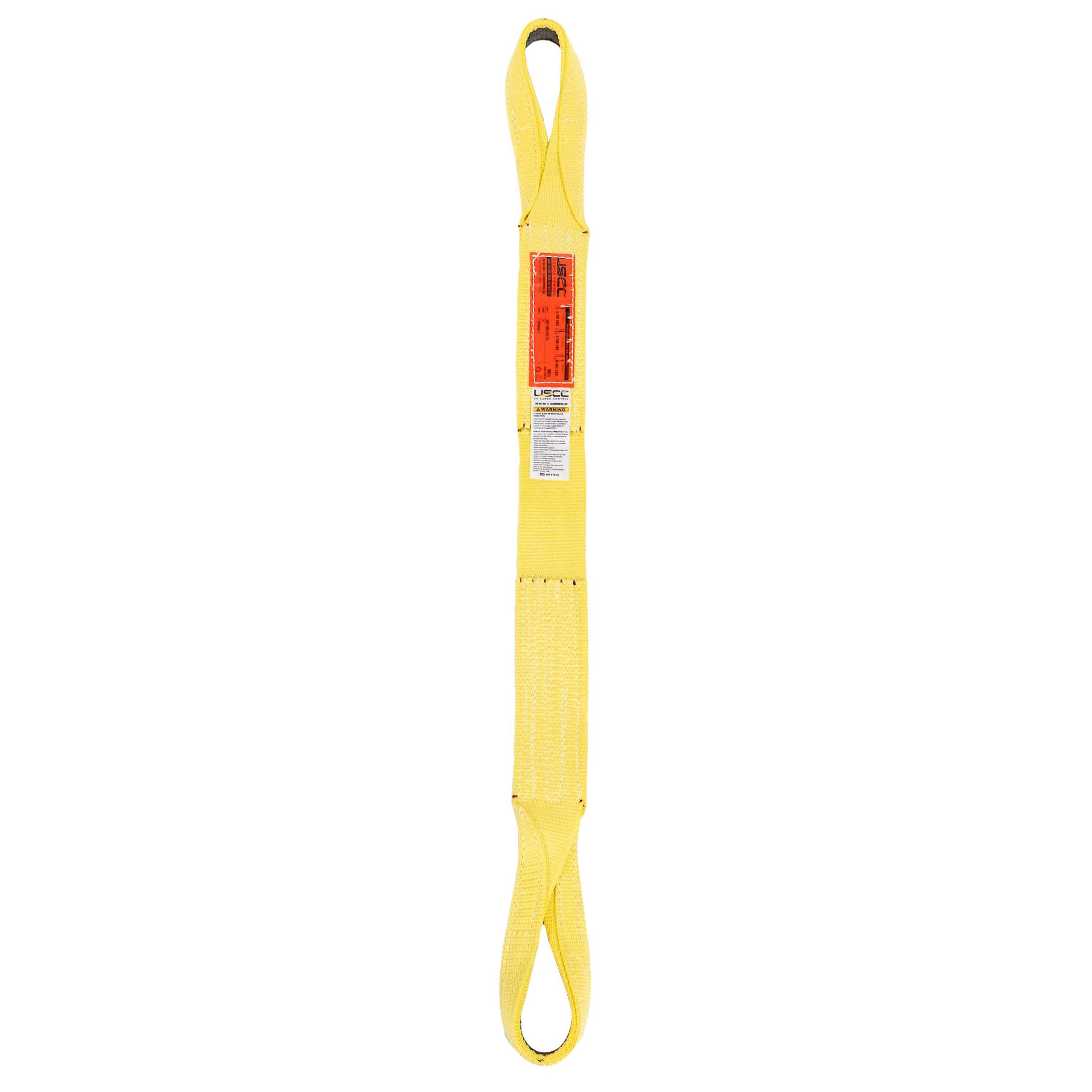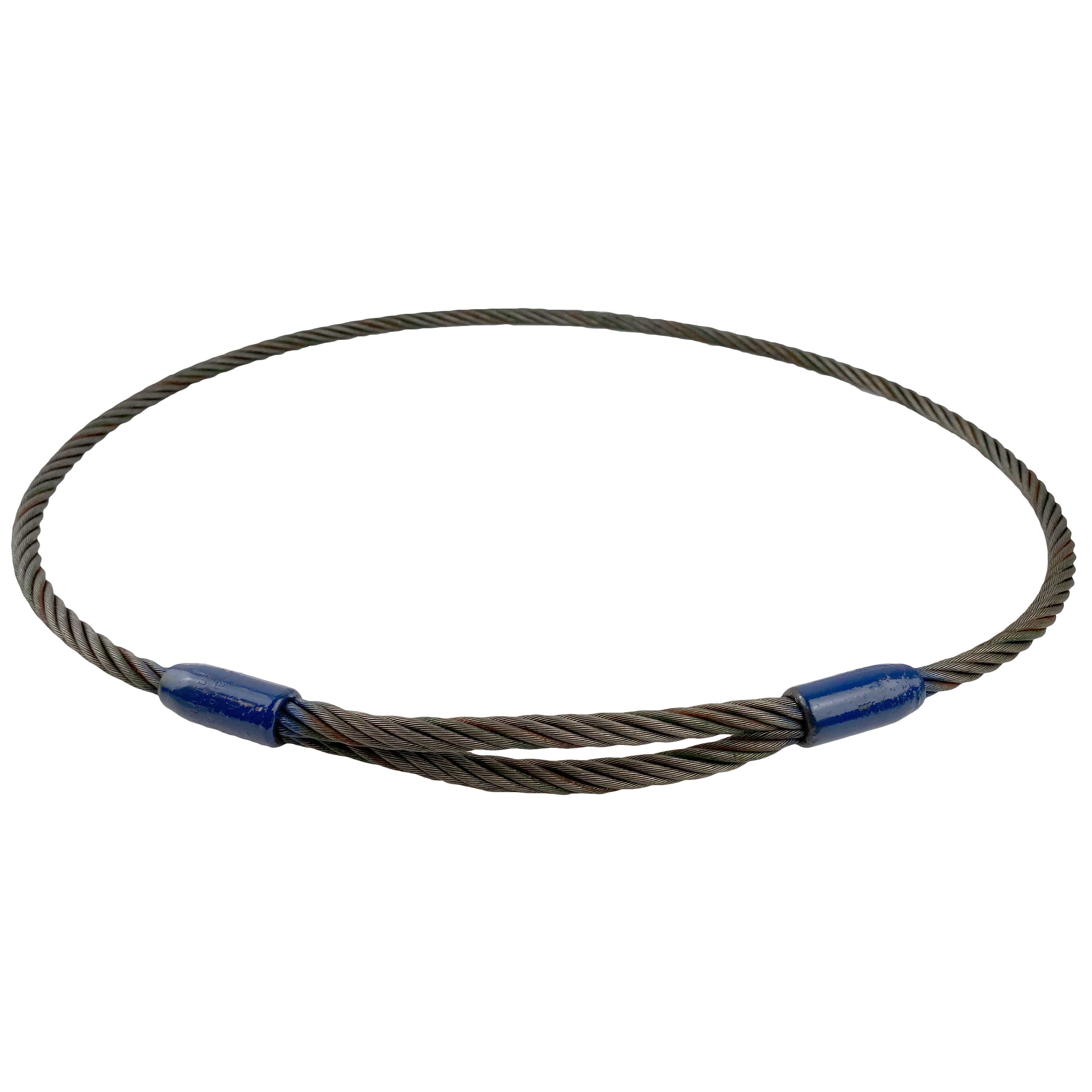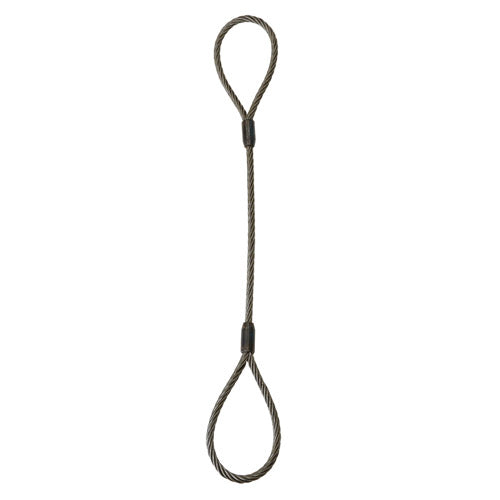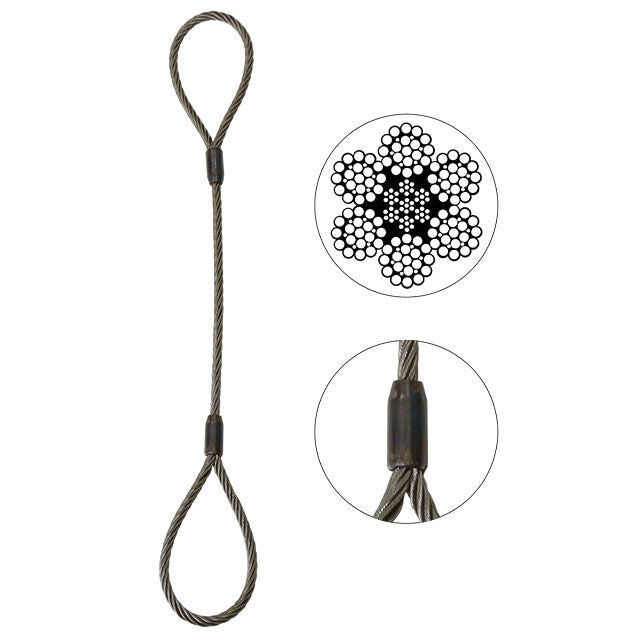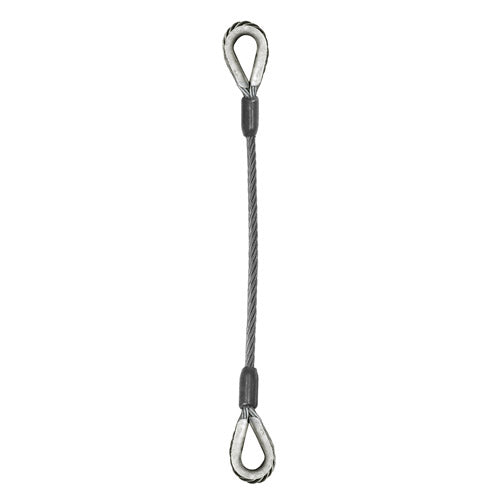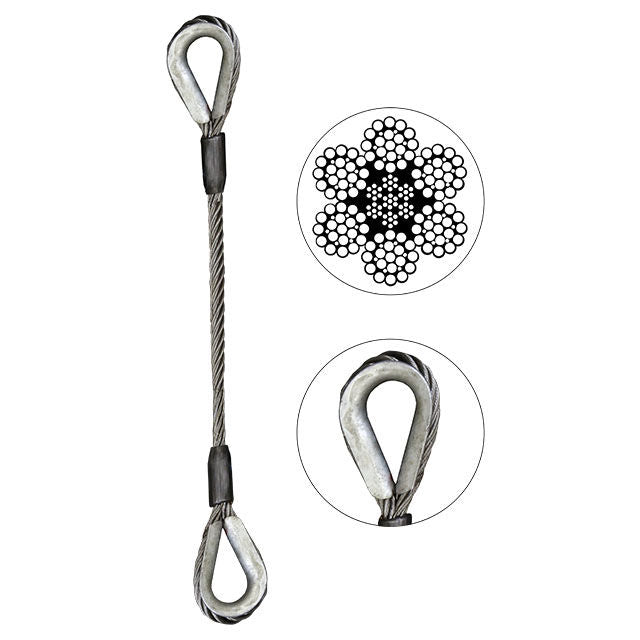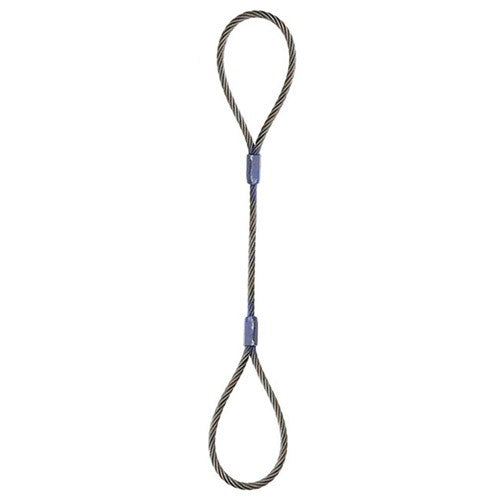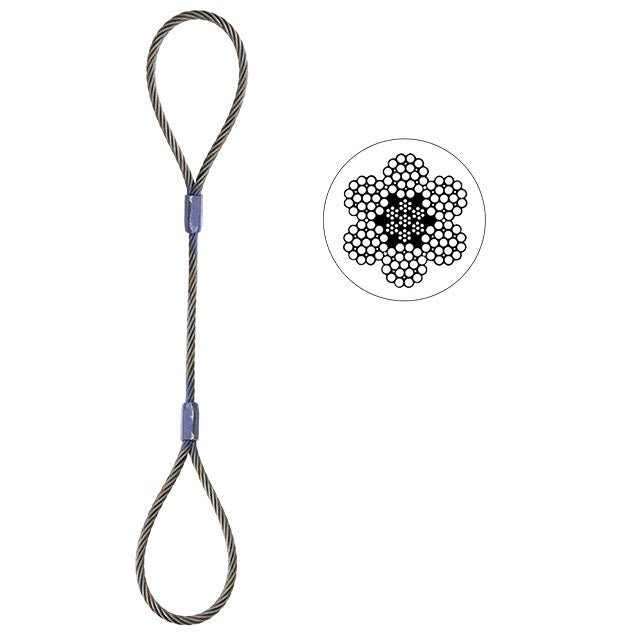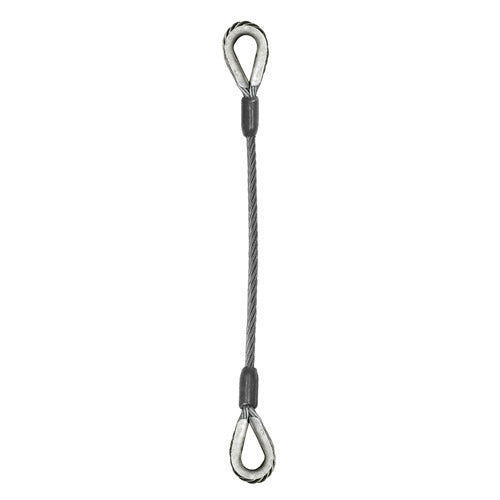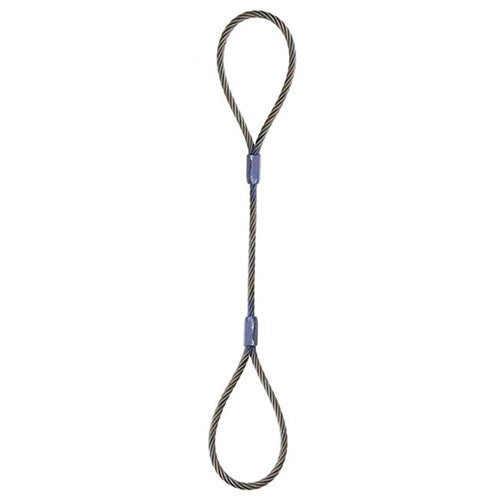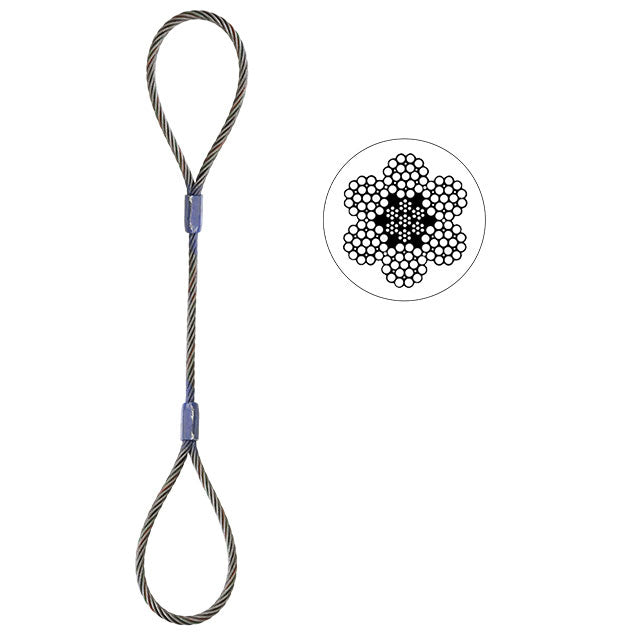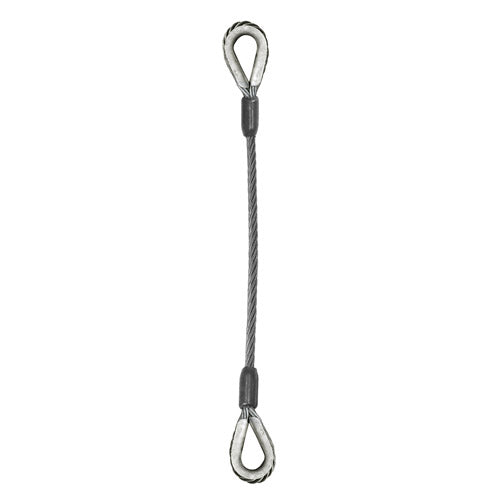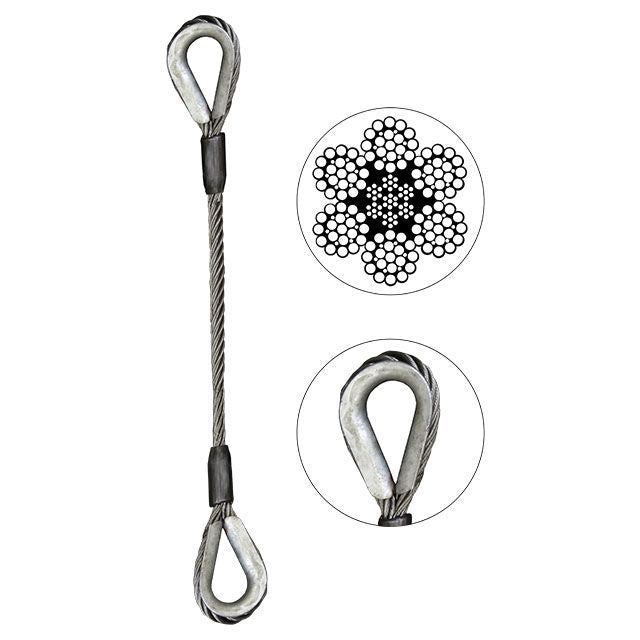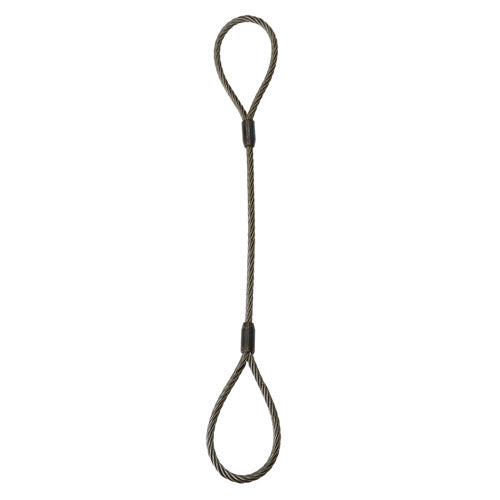3.9 Ton Lifting Wire Rope Sling | Thimble Eye & Thimble Eye
Wire rope slings are a common choice in the lifting industry – they are more cost-efficient than chain slings and more strong, durable, and temperature-resistant than many synthetic lifting slings. Along with these built-in advantages, choosing a single leg wire rope sling results in a simpler lifting setup when compared with multi-leg slings. It’s faster to connect, can maneuver better in tight spaces, and can be used in a more versatile range of hitches and angled lifts.
Note: Given the thimble sizes, this sling cannot be used in a choker hitch.
Thimble Eye Wire Rope Sling Benefits
Our wire rope thimble eyes are created by adding a thimble to a mechanical splice Flemish eye configuration, offering added wear and tear and eye deformation protection. The thimble also helps to ensure uniform load distribution.
This bolsters the lifespan of your sling and boosts the reliability of the Flemish eye, which is the most popular eye style. Constructed by splitting the wire rope into two parts, looping / weaving them together to create an eye, and securing them with a fitted swaged sleeve, it offers a higher lifting capacity than hand-tucked eyes.
5/8″ Dia. Wire Sling Construction
Our wire rope slings are made using EIPS-grade IWRC bright steel rope wire. The EIPS (Extra Improved Plow Steel) refers to the strength of the wire rope – its tensile strength is around 10% greater than an IPS grade, improving the lifting capacity. The bright steel classification means it’s uncoated except for a lubricant for basic corrosion-resistance.
IWRC stands for Independent Wire Rope Core. Constructed from durable steel, it’s more resistant to crushing / pressure and allows for sling use in higher temperature environments than fiber cores. Fiber cores generally only go up to 180°F / 82°C, while IWRC core slings can handle temperatures up to 400°F / 204°C.
Wire Rope Classification
Wire rope classification is a nominal indicator of the rope’s construction – the number of outer strands around the core and an estimation of the number of wires within each of these outer strands. This wire rope sling’s class is generally 6×19. That means it will have 6 outer strands, with the number of wires making up each strand ranging from 15-26.
The important takeaway from this classification is that it has fewer wires per strand than a 6×36 wire rope sling – resulting in a finished product that is more abrasion-resistant but not as flexible.
Note: This wire rope sling may occasionally be made with 6×36 class wire rope based on inventory levels. If your application requires a 6×19 classification, please reach out and we’ll make sure you get what you need!
12′ Wire Rope Cable Sling Features:
- Design includes a metal tag with capacity, care, and instruction information.
- Temperature range: -40°F / -40°C to 400°F / 204°C.
- Meets or exceeds the standards and requirements from ASME B30.9 and OHSA 1910.184.
- Proof testing certificates can be provided for a nominal fee and should be requested during your initial order.
Your One-Stop Shop for Lifting Products
For better load stability and higher lifting capacities, take a look at our 2-leg, 3-leg, or 4-leg wire rope slings.
Complete your setup by checking out our full line of lifting and rigging equipment, including common wire rope sling accessories like shackles, wire rope sling protection, and rigging hooks.
Don’t see exactly what you’re looking for? We also offer custom lifting and rigging options! Get the perfect wire rope sling for your application by calling or filling out our custom wire rope slings online form to get started. Our team of product experts is here to help answer any questions you may have.
California Residents: WARNING
